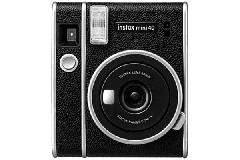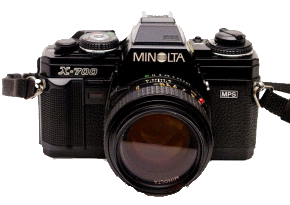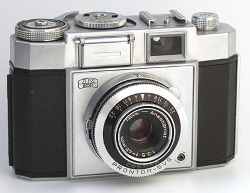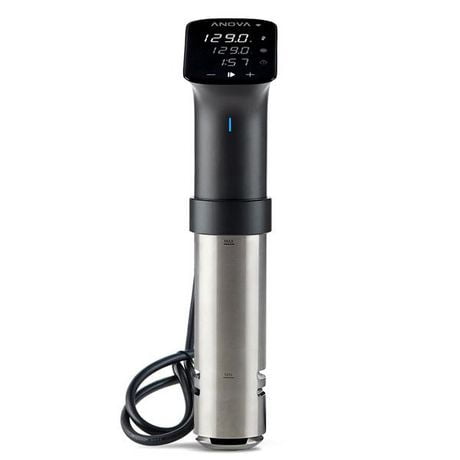My Photography Page
My Cameras
An Olympus point-and-shoot camera. Mine (which is a bit different from the picture above) has a zoom lens and fits into a pocket, so it's a very convenient camera for daily use. However, if you get a camera without a zoom lens, it'll be less fragile, it'll be smaller, and the lens will take better photos. Of course you won't be able to zoom. Cameras like this can be easy to find. I'd start by asking people you know if they have any cameras like this sitting unused that they'd be willing to give you.

A Fujifilm Instax Mini instant camera. Instax Mini film seems to be the cheapest instant film per shot, so you can take more photos without feeling like you're wasting money. The film isn't great. It has a low dynamic range and isn't very sharp. But, the cameras are fun to use, and people seem to like them. It's definitely a fun novelty, but I also don't see myself getting tired of using it any time soon.

A mid '80s Minolta SLR camera. Minolta made various models. The one I have has a built in light meter and can automatically control exposure, or you can do it yourself. Film advances with a thumb-operated lever. It's a nice camera, but it has a lot of plastic in its contruction, so it doesn't feel as durable as older cameras. These cameras can also run into electronic issues.

A Zeiss Contina from the late 1950s. You have to guess how far your subject is and set the focus on the camera to the distance you estimated. It does have a light meter, but you have to set the exposure settings manually. Cameras from this era seem to be very durable. The body is solid metal.
Processing Color Negative, C-41 Film at Home
In the past, I've developed black and white film myself at home, which wasn't too difficult. Color film is also doable at home, but it's much more complicated. However, it isn't so much more complicated that it's particularly difficult, but it does require more time and effort.
In my experience, with black and white film, you have a pretty wide margin for error in terms of development time and temperature. With C-41 process color film, you have less of a margin. The developer temperature and development time need to be pretty accurate or you could have things like color shifts. Of course, for the hobbyist, a small color shift or change in contrast may barely be noticeable, and even if such things are noticeable, the hobbyist may not mind it. So missing the right timing by a few seconds and being off by a degree F or two probably won't cause significant problems. If you want consistency and highly accurate results, you'd need to maintain a more consistent and accurate process. For important work, you'd probably be best off having your film processed by a good lab.
The biggest difference between B&W processing and C-41 processing, for me, was needing temperature control for C-41. When I process B&W film, I just use cold tap water, around 20 degrees C, and if it's off by a bit I never really cared. With color negative film, you need to maintain a temperature of about 100F, which is going to be hard to do from a faucet. A water bath will also cool down over time.
For temperature control, I used a cheap, secondhand sous vide cooker. This is a device intended to clip to the side of a pot of water to cook food. It heats up the water, circulates it, and maintains a set temperature. It's perfect for maintaining the temperature of a water bath. (By water bath, I mean that I place all of my sealed chemical containers into a tub of heated water. After a while, the temperature of all the chemicals should reach the temperature of the water in the tub).

Suppliers
Freestyle Photo
Ultrafineonline
Adorama
Lomography
Samy's Camera
Labs
Memphis Film Lab
The Camera Shop
Andrew's Analog Service Center
The Darkroom
Dwayne's
Citizen Photo
Blue Moon (?)
North Coast Photo
Process One
A&I Film Processing
Photo Life NYC (718) 604-0990
Dexter's Camera
Boutique Film Lab
Labs that process ECN-2 film